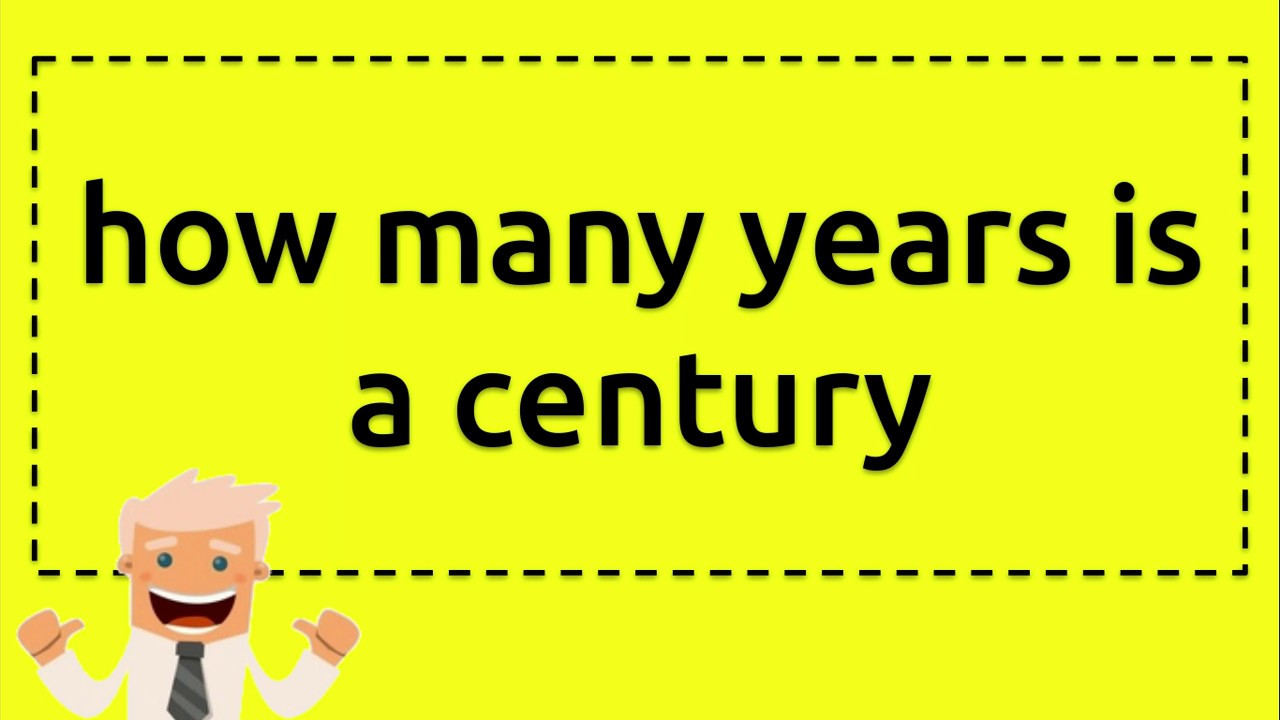Introduction: The Concept of Time
Time has always fascinated humankind. From the cycles of the moon to the rotations of the Earth, the passage of time is one of the constants in our lives. One of the most commonly used terms for long periods is “century,” but just how long is a century? At its core, the answer is simple, but the implications and history behind it are vast and profound. This article delves deep into the concept of a century, its origins, and its significance in various cultures and disciplines.
Defining a Century: The Basics
A century, by its most basic definition, is 100 years. It might seem straightforward, but how we’ve come to this standardized definition is rooted in centuries (pun intended) of history. The Latin word “centum” means one hundred, and when coupled with the word “annus,” which means year, we get “centum annus,” or a period of one hundred years. This Latin origin is still evident in many languages today, showcasing the widespread adoption and understanding of this time measurement.
Historical Perspective: Centuries Through the Ages
Throughout history, the idea of a century has had varying significance. In ancient Rome, for instance, a “centuria” was a military unit consisting of 100 soldiers. It not only emphasizes the importance of the number 100 in ancient cultures but also showcases its practical application in areas beyond just time measurement.
Cultures and civilizations have long used centuries as a benchmark for notable events. It’s common to hear references such as the “19th Century” when discussing the Victorian era or the “21st Century” when speculating about our current and future challenges. Such references provide context and help frame our understanding of historical and societal shifts.
The Century in Science: Cosmic Context
Beyond human history, the concept of a century finds importance in scientific realms as well. For instance, when astronomers study stars, they often look at changes that occur over centuries to understand a star’s life cycle. In geological terms, while a century is but a blink in the vast span of Earth’s history, it’s still used as a reference point for more minor shifts or changes, especially in the context of human impact on the planet.
Environmental scientists, when studying climate change and its long-term effects, often employ data from centuries to track patterns and anomalies. The past few centuries have been particularly telling regarding human-caused climate shifts, offering valuable insights into our planet’s future.
Cultural Impact: Centuries in Art and Literature
The passage of a century often heralds reflection and nostalgia. As we approached the 21st Century, for example, there was a worldwide reflection on the achievements, failures, and significant events of the 20th Century. This reflection is not just limited to news outlets and historians. Artists, writers, and musicians often use the concept of a century to comment on societal changes, hopes, and fears.
Literature, in particular, has seen works that span multiple centuries, offering readers a panoramic view of societal shifts, evolution, and regression. Such works provide unique insights into the human experience, capturing the essence of several generations within the confines of their pages.
The Everlasting Significance of a Century
In essence, while a century might mean 100 years, its implications and significance are far-reaching. Whether in history, science, or culture, the concept of a century offers a unit of measurement that aids in understanding, reflection, and prediction. As we progress, the lessons from each passing Century become crucial, guiding future generations toward progress and enlightenment. Just as the Earth completes its journey around the sun to mark a year, the cumulative experiences of those years become milestones when they reach that century mark, etching their significance into the annals of time.
Centuries in Politics: The Rise and Fall of Empires
Over a century, political landscapes have undergone dramatic transformations. Empires have risen to their pinnacle of power, only to collapse within 100 years. These shifts remind us of the transient nature of political dominance and the ever-evolving nature of geopolitics.
Century-Old Traditions: Preserving the Past
Across cultures, century-old traditions are a testament to human resilience and the desire to preserve heritage. From festivals to art forms, these age-old practices are cherished, ensuring that future generations stay connected to their roots.
The Technological Leap: A Century of Innovation
Within just a century, humanity has seen unparalleled technological advancements. From the advent of airplanes to the digital revolution, the pace of innovation highlights our species’ insatiable curiosity and drive to improve our quality of life.
Fashion Through the Century: Evolution of Style
Fashion offers a unique window into society’s soul, with styles evolving dramatically every Century. The silhouettes, fabrics, and colors prevalent in one era become vintage classics in the next, showcasing our ever-changing aesthetic preferences.
Century in Sports: Athletic Achievements and Transformations
The world of sports has seen legends rise, records broken, and games evolved over centuries. New sports have emerged, while old ones have adapted, reflecting society’s changing values and passions over 100 years.
A Century of Cuisine: Culinary Journeys Across Time
Every Century brings a melange of flavors, ingredients, and culinary techniques. As societies mix and migrate, their foods evolve, creating a delicious tapestry of dishes that tell stories of generations past.
Also Read The Following ; How Long is a Century









Leave a Reply